 Well, I’m dying to know which ending of the Coke Chase/Mirage Super Bowl ad you’re going to vote for! Really though, it’s impressive the way it simultaneously works the racial and gender angles while also exploiting the latest broadcast strategy of audience engagement.
Well, I’m dying to know which ending of the Coke Chase/Mirage Super Bowl ad you’re going to vote for! Really though, it’s impressive the way it simultaneously works the racial and gender angles while also exploiting the latest broadcast strategy of audience engagement.
Of course, the central device is how the ad plays off the desert … and the “great race” (both the movie and American exceptionalism).

With the West in an endless struggle in the Middle East not just for resources but mindshare, we see the Coke bottle — the symbol of globalization and American commercialism — sitting there in the hot sand, the object of desire for, first of all, this hapless Gulf prince/camel jockey.
It’s funny but not-so-funny when you consider that what America has to offer is, in fact, a mirage. What the ad people realize I’m sure is that, after more than a decade in Iraq and Afghanistan, the idea of “quenching” — no matter how much you “put down” the Arabs and Islamists — couldn’t be more ironic.
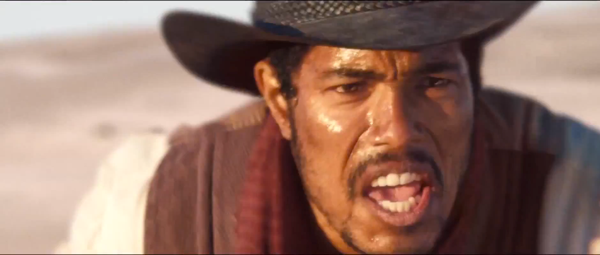
Resonating also with what surely is not going to be a easy and clean immigration debate, we then have a Hispanic desperado evoking the desert as if the province of thirsty Mexicans looking north. (Maybe the nationalist twist here is “Coke is amnesty” vs. “Coke is it.”)
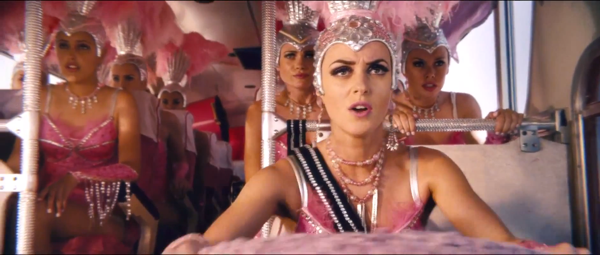
And then, what’s a Super Bowl without intense pandering to the female demographic by trumpeting instance after instance of women emasculating that lower life form, otherwise known as the American male.
Playing the eye candy/titillation card at the same time it empowers, today’s modern woman is represented by a Las Vegas showgirl troop. Sexy as they are tough and independent (the driver symbolically head butts a biker off the windshield like a bug), the ad actually brought to my mind the horrific and unsolved disappearances and murders of so many women in Mexico.
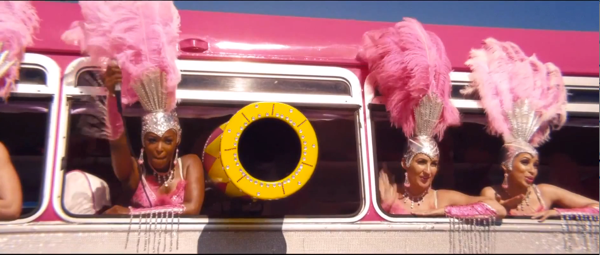
Perhaps an extreme allusion, that’s where my mind went watching the women on the bus punishing the leering Latino with an ejaculation of confetti.
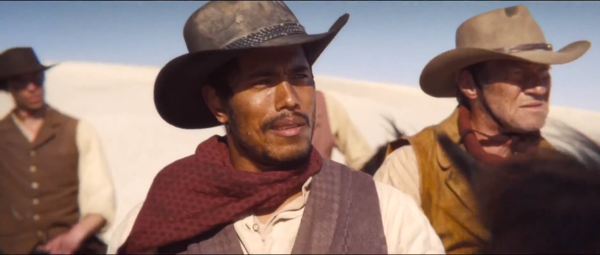
Obviously, these commercials are a complex mash of every seducing and agitating cultural hook they can metaphorically lay claim to. Perhaps the biggest symbolic take-away here, however, is that — when it comes to the women and Hispanics as target markets, playing simultaneously on their subjugation as well as their empowerment — why would Coke leave African-Americans as the only demographic group the Djangos unchained on the screen this year?
Now the only question is, with just one Coke in the budget, who wins?



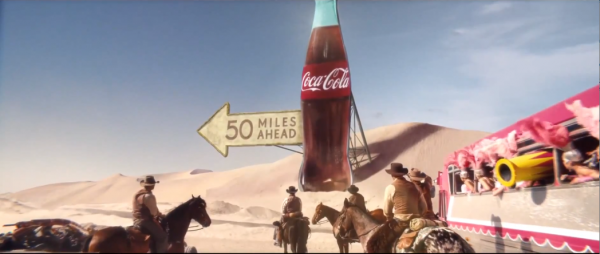
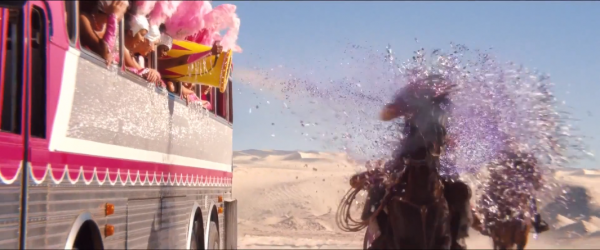
Shares